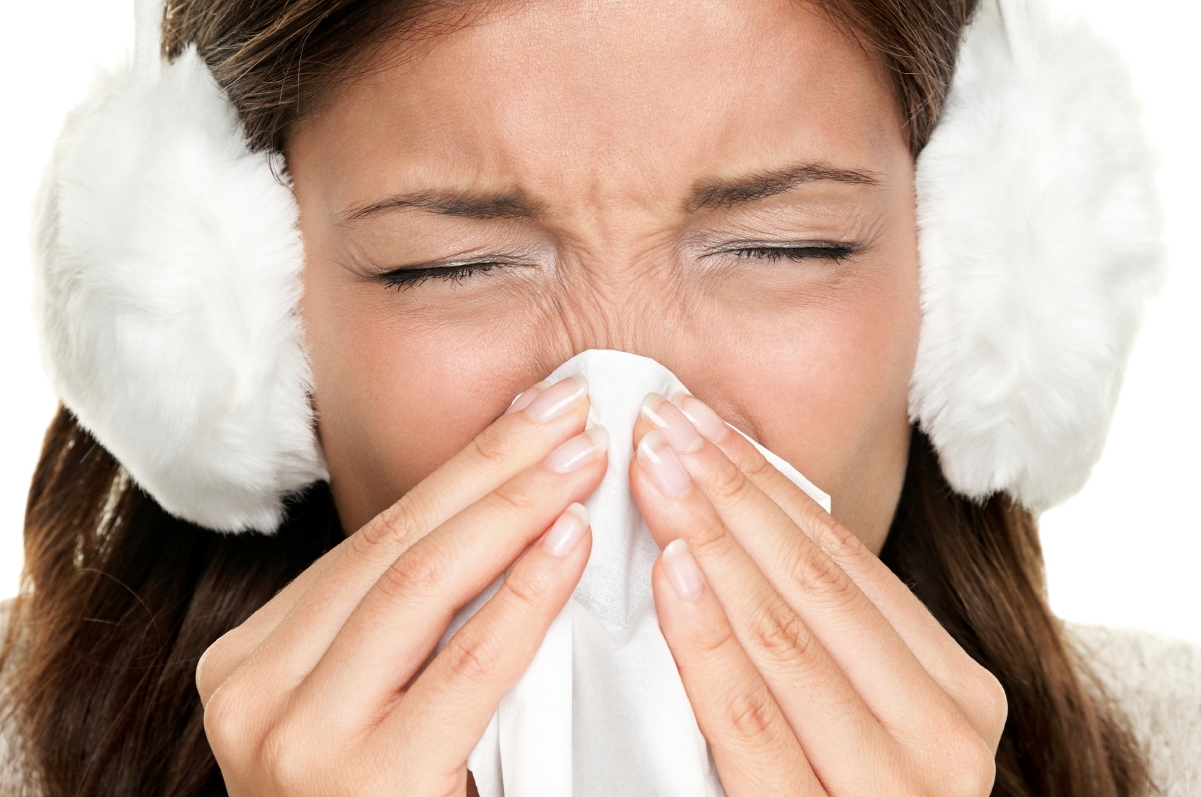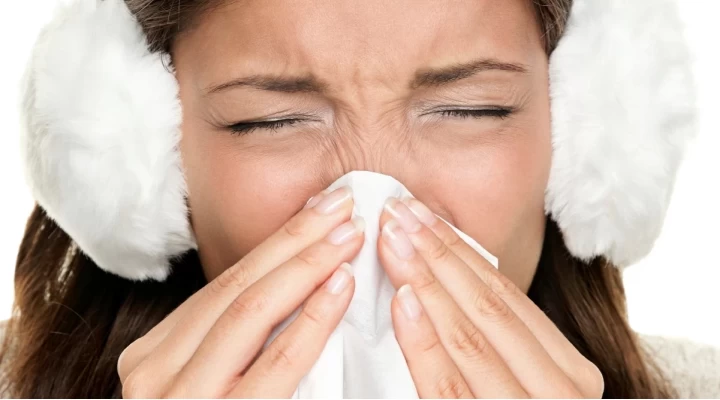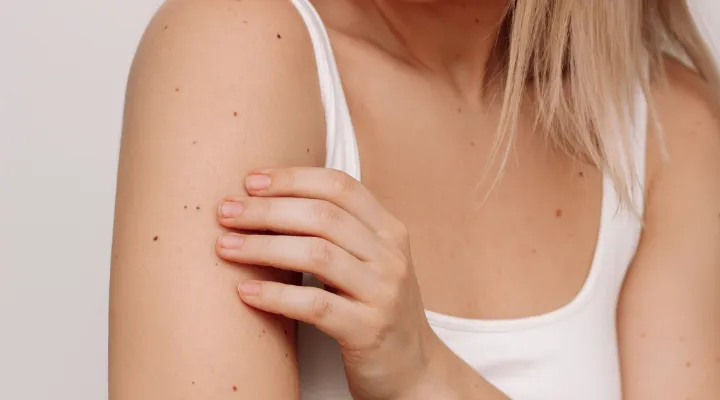Usually, when they hear about allergies, most people immediately think of pollen, which can leave people sneezing and suffering with runny noses for the whole of summer. At least those people can breathe normally in winter. If, however, you are sensitive to dust, mould or animal fur, then winter is the real start of the allergy season. With the help of our allergy specialist Dr Adrienne Nagy PhD, we have put together some important information on winter allergies.

When it gets cold, we switch the heating on, sending all the dust and toxic materials which have accumulated over the year into the air. If all this finds its way into your nose, you can quickly find yourself having an allergic reaction. During this process, histamine is produced, resulting in sneezing, watery eyes and a runny nose.
Cold or allergy?
In can be difficult to distinguish between the symptoms of winter allergies and the onset of illness. In the winter months, people seem to catch one virus after another, so it can be hard to decide on the real cause of the complaint. The easiest answer to the question is that a cold usually lasts eight to ten days, while an allergy can torture the sufferer for months on end.
What are the most frequent winter allergies?
- The most common winter allergens are dust mites, which can be found in bedding and mattresses. The allergic affects are caused by the airborne dried faeces of these tiny creatures. To ensure that as little of this matter gets into the air as possible, you should wash all your bedding once a week. It’s also worth trying anti-allergenic sheets. The most common symptoms of dust mite allergies are sneezing and a runny nose in the morning. Make sure your airways are clear and a runny nose doesn’t lead to scarring in your nose, as this can result in infection. To get rid of dust, use a vacuum cleaner with a HEPA filter, which prevents dust being recycled back into the air. If you want to buy a HEPA filter, be aware that the higher the number given to the filter (e.g. H14 and above), the more efficiently it filters the air.
- Pet allergies are a sensitive topic. With the cold temperatures of winter, a lot of pet owners decide to let their favourite dog or cat into the house. This can provoke a strong allergic reaction to animal fur, typically resulting in sneezing, coughing and itchy eyes. It can be pretty hard to throw our loved ones out, but if you want to be close to your pet, give them a bath at least once a week and don’t let them in the bedroom. It’s also important to know that we are dealing with two separate issues. Dust mites can feed on fur shed by house pets, as the fur of animals kept indoors is an excellent source of nutrients for the mites, who will then start to multiply. Unfortunately, your pet can also trigger various other allergic reactions too.
- Mould is another common cause of allergies. It can easily form in damp places, such as the bathroom or basement. In fact, if you have modern plastic doors and windows in your home, isolation that is “too good” means that you can find damp in any room of the house. This is why you should throw away all items in your house that are irretrievably mouldy. Those parts of your house that can’t be “thrown away” should be treated with an anti-mould spray or disinfectant.
For all three allergy types, it’s a very good idea to regularly air your apartment. You should keep your windows open for at least five minutes so that the warm, contaminated air can escape and be replaced with fresh, dry air.
- There is one more thing to consider when talking about winter allergies. In winter, we eat and drink a lot. This can bring out rashes and reactions triggered by a food allergy or histamine intolerance. The latter may be caused by a deficiency in the DAO enzyme, which leads to problems in breaking down foods with high histamine content. The food and drink found in festive winter meals in Hungary – smoked meats, red wine, pickled cabbage, fish, seafood, poppy seeds, mature cheese and pickles – all contain high levels of histamine, which presents a challenge to your body as it tries to break it down. Our specialist in allergies, Dr Adrienne Nagy, is available for the diagnosis and treatment of allergies in patients of all ages.
Treating winter allergies
Very often, a change in your environment is enough to make the complaint go away, but you should consult a specialist if your symptoms do not pass.

As with other allergies, immunotherapy is a popular way to treat winter allergies, helping the body to get get used to the factors that trigger the allergy. We recommend this method, as Allergen-Specific Immunotherapy (SIT) addresses both the symptoms and the cause of the allergy.




